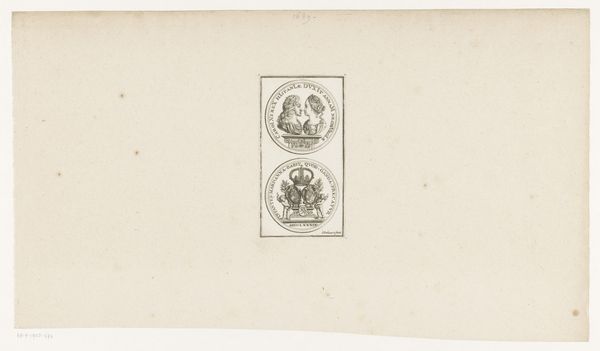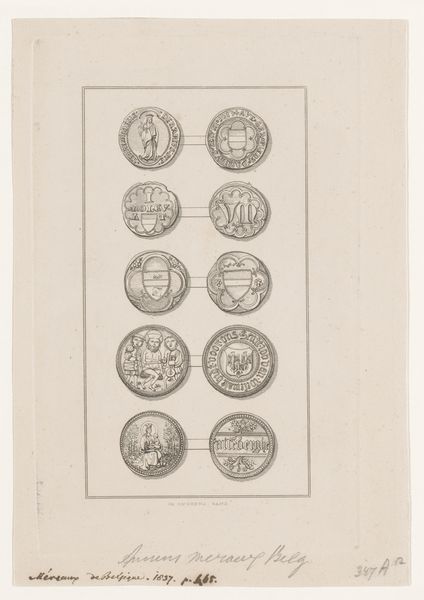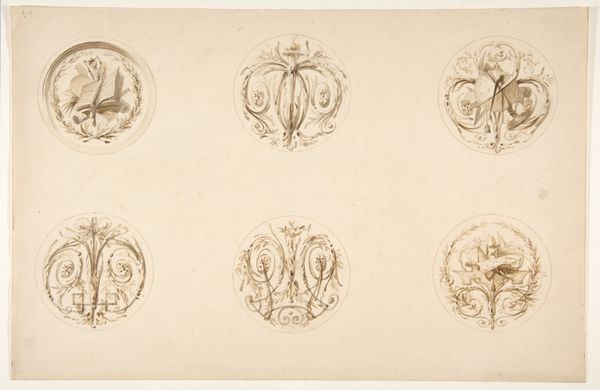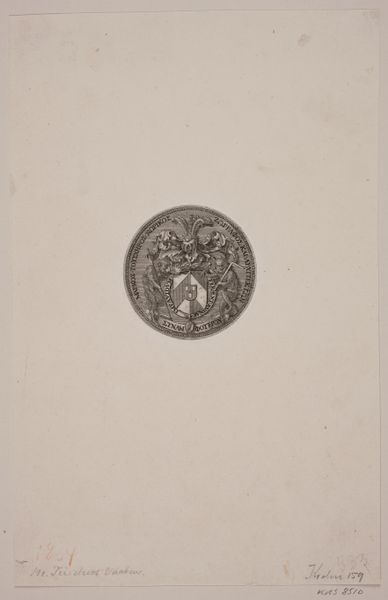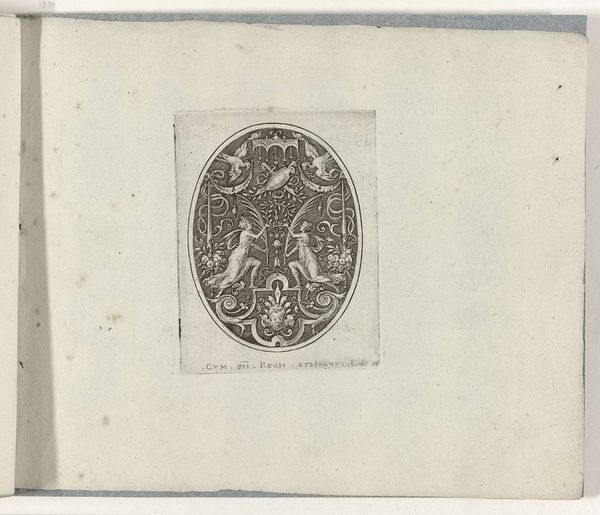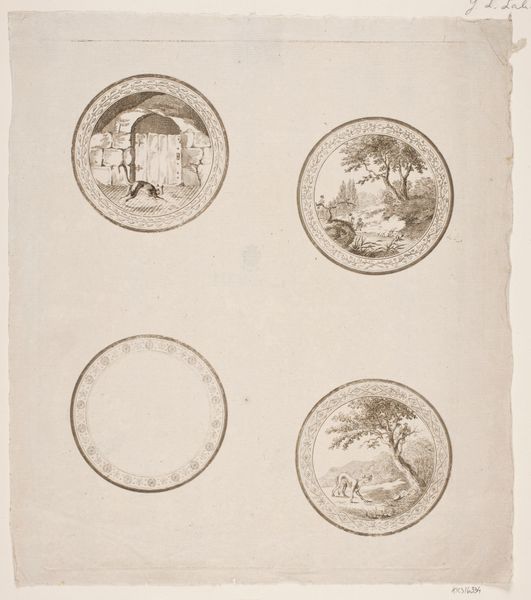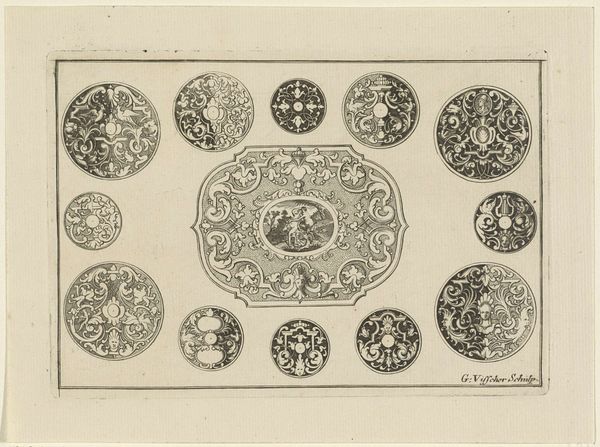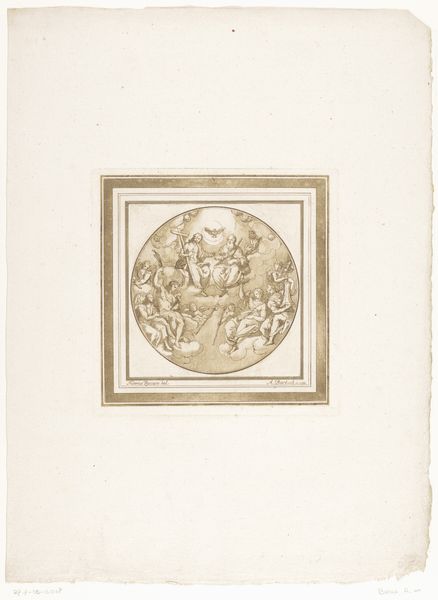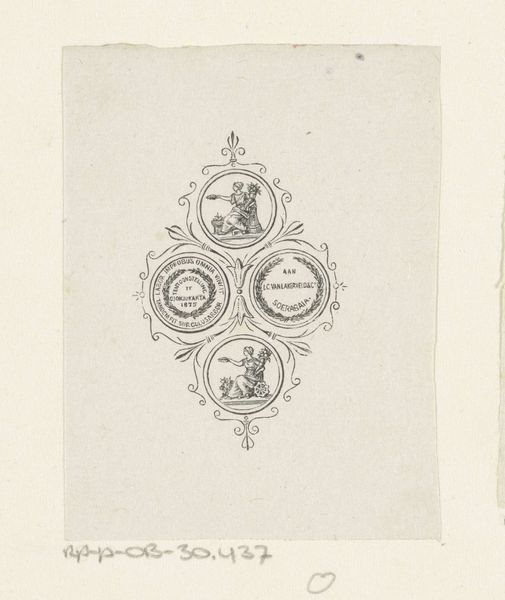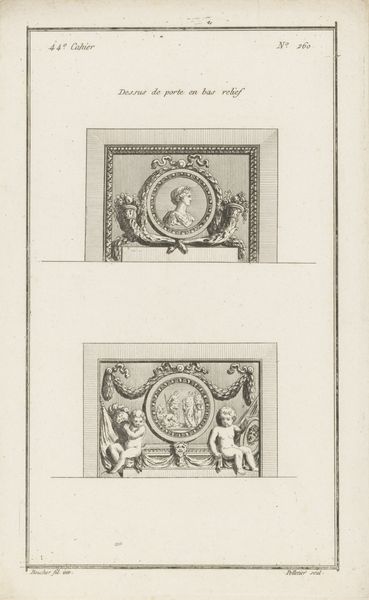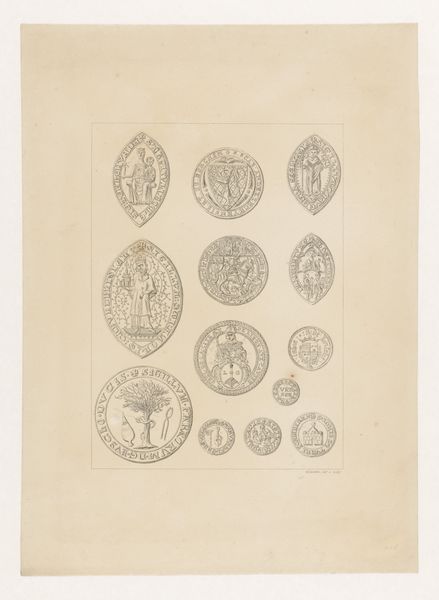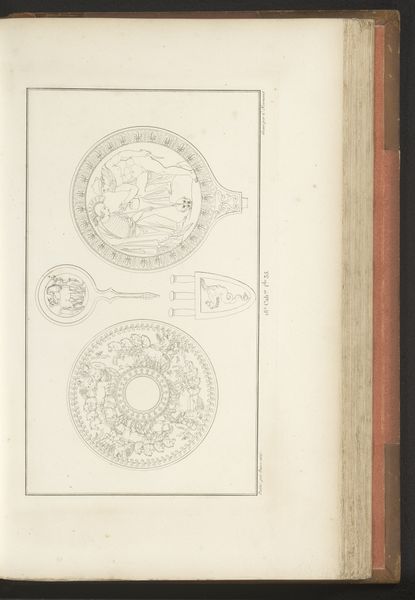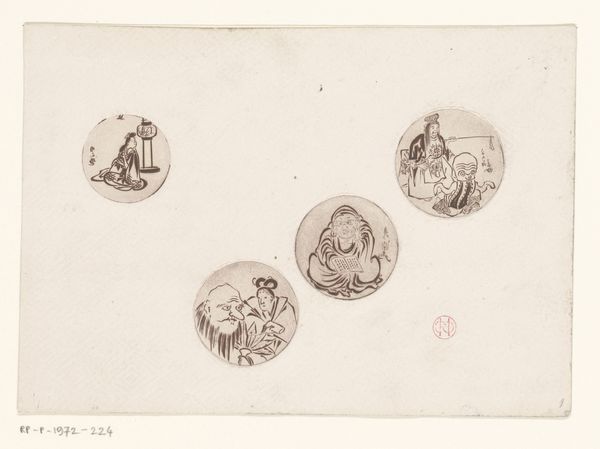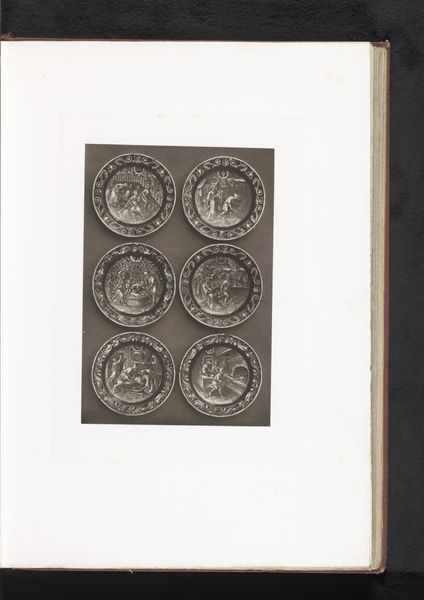
print, metal, engraving
#
portrait
#
baroque
# print
#
metal
#
history-painting
#
engraving
Dimensions: height 108 mm, width 127 mm
Copyright: Rijks Museum: Open Domain
This print, "Penningen," was created by Juan Dolivar sometime before 1692. The process used was etching, an indirect intaglio method, where lines are incised into a metal plate using acid. The plate is then inked, and the surface wiped clean, leaving ink only in the etched lines. The print is made by pressing paper against the plate. These are not traditional fine art materials; rather, they are tools of information dissemination, deployed to circulate images widely. The material's ability to reproduce images efficiently underscores the evolving relationship between art, commerce, and society. Consider the labor involved: from the engraver's skilled hand guiding the etching needle to the press operator ensuring a clean impression. The social context matters, too. Printmaking allowed for broader access to visual information, influencing public opinion, and shaping cultural narratives. It challenges the idea of art as solely high-end aesthetics, emphasizing its role in mass communication and cultural production.
Comments
No comments
Be the first to comment and join the conversation on the ultimate creative platform.
